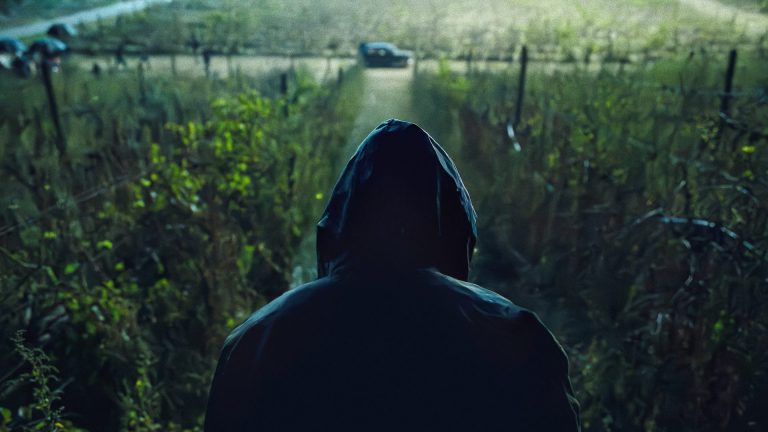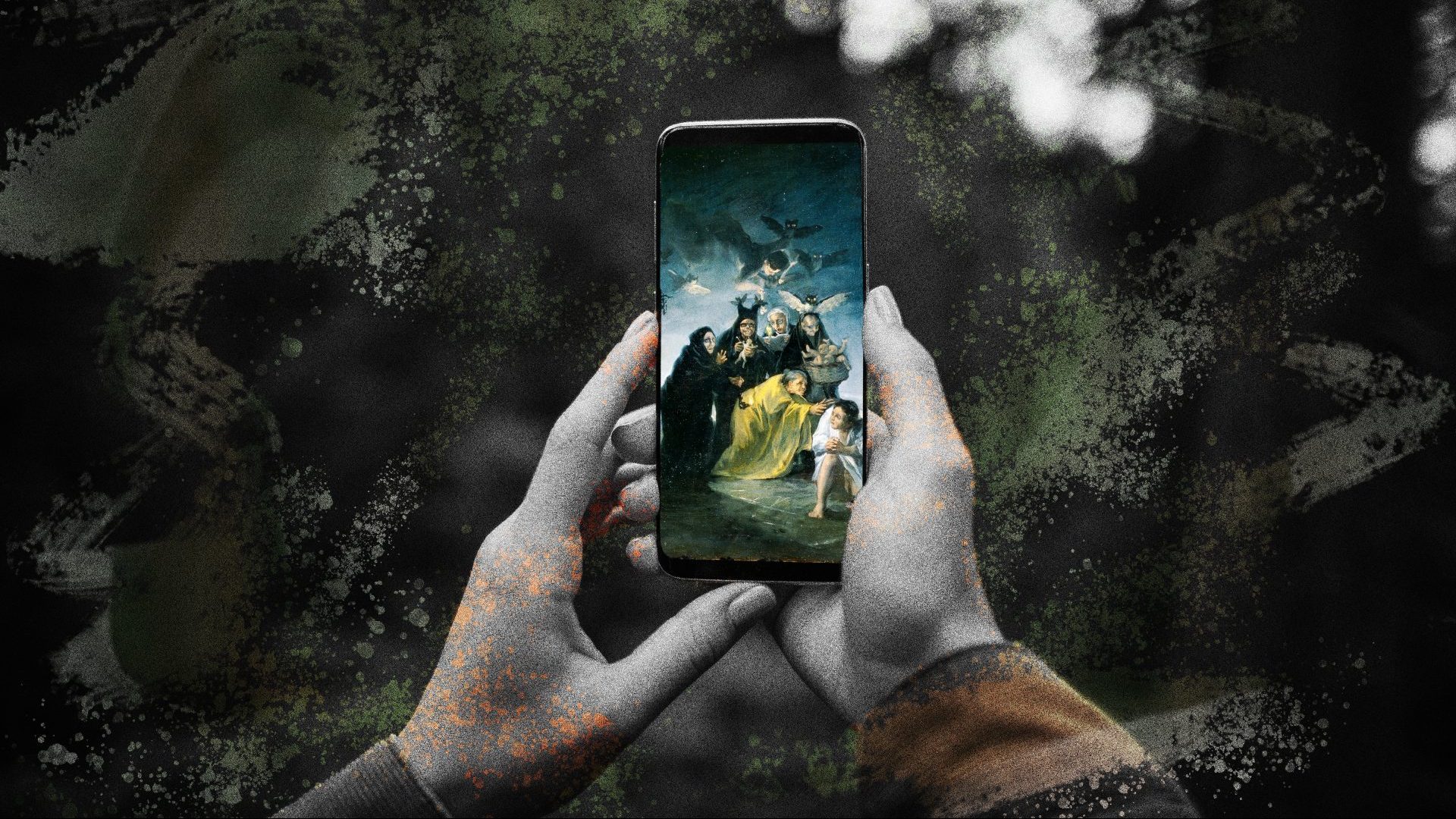It’s Friday afternoon and I’m browsing spells on Etsy. For £4.80 (reduced from £11.99), I can buy a “POWERFUL SUCCESS SPELL” that promises a “life where everything you touch turns to gold”. Very tempting. A love spell is a little pricier – £14.68, down from £29.35 – but unlike some other sellers, the witch will send photographic evidence of the “powerful obsession ritual” performed on your behalf.
One “fast money” spell is £1.41; another promising £5-10K of “instant cash” is £12.78. There are weight-loss spells, beauty spells, even “extreme sex” spells. Curses, too, but I know better than to mess with bad vibes – especially on the internet. I settle on a good-luck spell for £5.65. “Cheaper than Pret!” I think to myself cheerily, and the money leaves my bank account.
Once the domain of independent artists and crafty side hustlers, Etsy has increasingly become a marketplace for the mystical, home to digital witches, psychics and tarot readers selling a change of fortune at the click of a button. Everything from good weather to victories for your favourite football team is on offer – and business is, apparently, booming.
The witch behind my good-luck spell has sold more than 800 services in their year on Etsy. Some sellers have racked up thousands in a similar timeframe.
I’ve never found it too difficult to sniff out the occult on the internet – in sixth form, my friends and I attempted to summon a demon in an all-you-can-eat Chinese buffet while skiving maths, all thanks to Google. But these days, it feels like the mystical is actively chasing me.
My social media feeds are full of creators claiming an Etsy witch transformed their lives, or WitchTok influencers showing me which DIY spells can improve my day. More common still are tarot readers, each vying for my attention with virtual readings that, even though they’ve been viewed by thousands, sometimes millions, of people, sound as though they were tailored just for me.
Straight-up psychics are rarer, but no less compelling (“You’re right! I am misunderstood!”). When everything feels out of control, these spiritual guides are on hand with practical-magic solutions.
Niche algorithmic quirk? Hardly. Over the past five years, TikTok tarot readers and psychics have been written about everywhere from Teen Vogue to Forbes. A more recent phenomenon, Etsy witches entered the news cycle after Jezebel issued an apology for a satirical article about hiring one to curse Charlie Kirk, published two days before his assassination. (Both the original article and the apology have since been removed.)
On her new solo album Ego Death at a Bachelorette Party, even Paramore frontwoman Hayley Williams sings about being sucked into this world of digital mysticism: “Endless scrolling, up ’til three / Alex Reads Tarot reads the shit out of me”. Naturally, every terminally online ex-Tumblr kid went wild.
“I didn’t believe it at first – I thought people were pulling my leg,” says the Alex in question. “I just suddenly got an influx of DMs saying, ‘You were mentioned in a Hayley Williams song!’”
The 23-year-old started practising tarot mid-pandemic in 2020, inspired by other creators she’d seen online. “I bought my first deck of cards and when I first started connecting with it, it felt like a piece of me had come home. I slept with them under my pillow, I had them on me all the time.” Alex went to Catholic schools in Scotland, but traditional religion never resonated. By the time she discovered tarot, though, she’d already been on a spiritual journey, partly inspired by The Power of Now by Eckhart Tolle.
“I’ve struggled a lot with my mental health and anxiety, so a more holistic approach changed my life – starting to think outside the box. I took a step online, shared it with the world, and five years later, this is where we are,” she says. Now, Alex has more than a million followers across TikTok and Instagram. Online tarot reading is her full-time job.
Whether or not virtual psychic readings are legit is up for debate. Scepticism is inevitable, either of the practice overall or whether it can be accurately performed to millions of people at once.
Alex is forthcoming in her acceptance of critics, and openly acknowledges the potential for scammers and charlatans to hop on board – both on her page and during our interview. “With anything in life, people see a service that people provide and they use it as a means to scam other people,” she says.
Alex focuses on guidance and reflection rather than flashy promises of riches and success. All of her videos are prefaced with a caveat to “take what resonates and leave what does not”, and unlike other creators, she never encourages users to comment or share her videos to “claim” positive predictions in her readings.
“Pardon my French, but that is bullshit,” she says of those particular engagement ploys. “As soon as you see anybody who says that, move on, because that person is trying to instil fear upon the watcher. It’s manipulative for likes, follows and engagement.”
Suggested Reading


Kill, stream, repeat: has our obsession with true crime gone too far?
The Etsy witches are less open. In fact, every seller I contact for this story eventually ghosts me – make of that what you will. But the very fact that they’re willing to monetise witchcraft – often aided by AI images and trending terms such as “lucky girl syndrome” – has raised eyebrows among long-time practitioners.
“In ethnographic terms, that’s called a service magician,” says Christina Oakley Harrington, a former academic and founder of London’s esoteric bookshop Treadwells, who has been practising Wicca for 38 years. She’s seen the trend explode in the past year, likening it to a digital-age evolution of phone psychics and chain emails.
“It’s a form of financial exploitation that preys on people’s insecurities and their desire for wonder and answers, which all human beings have,” she says. “It’s how advertising works and it’s how algorithms work. We all want to feel special.”
This collision of belief and business isn’t new. And it’s certainly not limited to the occult. “I don’t think that faith has ever not been commodified – if you go to a church, it’s very eager to have you commodify your faith,” says Tanya Marie Luhrmann, a psychological anthropologist and professor at Stanford University. What has changed, she says, is the number of people going to church in the first place.
Belief in God has been declining for decades, both in the UK and the US. But in the UK, 42% of non-believers do believe in some form of the supernatural, whether that’s the afterlife and ghosts or the healing power of crystals.
“They’re not going to be part of mainstream religion, but they want meaning,” says Luhrmann. “They want interpretation, to anticipate the future, some kind of an explanation for when things are going wrong, or some sort of protective mechanism. They want to feel in tune with a larger purpose.”
Oakley Harrington is less convinced of the direct correlation between the decline of religious institutions and the growing community of mystics online (“Organised religion hasn’t broken down significantly in the past five years”). What has changed is how we navigate our basic human desire for connection – and the way the wellness industry, currently flooded with spiritual-adjacent buzzwords like “manifestation”, exploits widespread loneliness.
“People are more isolated,” she says. “One of the biggest cures to overspending is having dinner with your neighbours or going down to the community centre to play bingo. But culturally, it’s easier for me to buy a spell on the internet or have a five-minute tarot reading than it is to knock on my neighbour’s door, who I don’t know very well.”
Alex Reads Tarot sees similar themes crop up in her work, both on social media and conversations with one-on-one clients. “We’re in a very difficult time where people are feeling lost and confused,” she says. “I think what a lot of people experience from tarot is that it can put things in perspective – it’s a safe space where people feel held.
“It opens your mind to questions like, ‘How am I feeling? Am I taking care of myself? Do I need to have a deeper think [about an issue in my life]?’ But it’s not a replacement for getting any kind of professional help or supporting your mental health.”
Crucially – for me, at least – it’s also fun, a “Why not?” add-on that simultaneously satisfies curiosity and a need for answers. If it genuinely clicks, it can be a gateway to a deeper spiritual practice.
“If I was a teenager, I would be on WitchTok and I’d be doing spells,” says Oakley Harrington. And you’re underestimating the younger generation if you think they’re not smart enough to question what they find on the internet.
“What’s really interesting now, compared with 10 years ago, is that we have a lot of young people [interested in magic] coming into Treadwells and going, ‘I went on the internet and everything contradicts itself – there’s so much that I can’t trust any of it.’ The young people who are coming here are feeling that the internet has no credibility.”
Comfort or con, what these digital mystics are really selling is hope, whether nudging you towards greater understanding of yourself or granting wishes like a genie in an iPhone. Scammers are having a field day. But magic isn’t the only thing on the internet that’s often too good to be true – think crypto, the manosphere and digital marketing pyramid schemes, all promising to improve your life if you watch, like, comment and buy a self-published e-book.
Maybe a fiver for a spell isn’t so bad after all. It’s been a few weeks and my life is exactly the same. But I did get a free beer on a night out shortly after purchasing, which, at £8 a pint in London, is indeed a stroke of good luck.
Will I buy another spell? Not anytime soon. Will I stop watching Alex Reads Tarot’s videos? Only when she stops posting.
Olive Pometsey is a freelance writer and editor whose credits include British Vogue, Elle and British GQ




